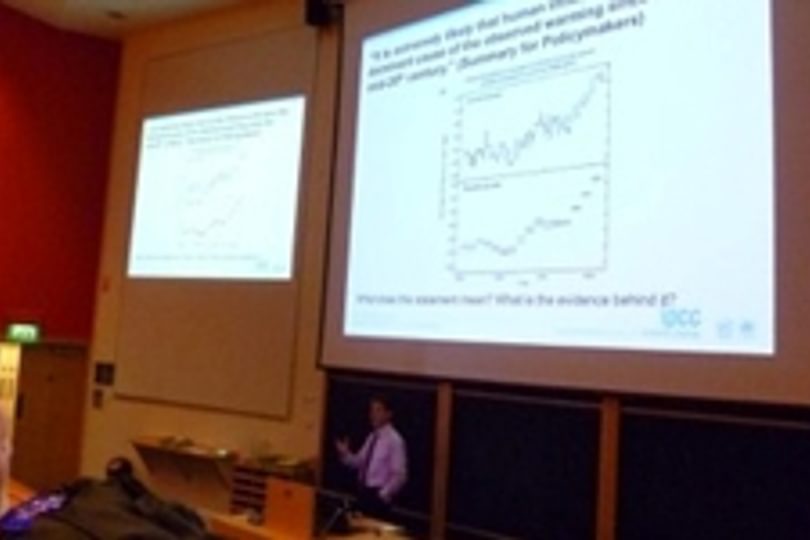
September 2013 saw the launch of the latest Intergovernmental Panel on Climate Change (IPCC) first working group report on the physical science basis for climate change. AR5 as it is known, builds on the success of the previous IPCC report launched in 2007, providing a review of the current science across a range of issues including clouds and aerosols, detection and attribution, evaluation of climate models and sea level change. It represents a truly global initiative with contributions from 259 authors from 39 countries, and with over 54,000 comments from leading climate scientists. Although there will always be those who doubt the validity of the science, no one can doubt the thoroughness and inclusivity of the process getting us as close to a ‘consensus’ as is possible within a scientific debate.
The report’s summary for policy makers states that: “Warming of the climate system is unequivocal, and since the 1950s, many of the observed changes are unprecedented over decades to millennia. The atmosphere and ocean have warmed, the amounts of snow and ice have diminished, sea level has risen, and the concentrations of greenhouse gases have increased.”
This statement though masks a lot of questions regarding the underlying science, and having the time and scientific understanding to wade through the full report is beyond many of us. With this in mind, the Oxford Climate Research Network, led by Professor Myles Allen held an open, public event to summarise and answer questions on the physical scientific basis of climate change as reported in the AR5.
Due to the size of the report it would not have been possible to work through every chapter, so the evening focussed on Oxford scientists’ contributions to: clouds and aerosols, detection and attribution, changes in sea ice and ice sheets. In addition, Prof Rowan Sutton (University of Reading) was invited to talk about the science of near-term climate change.
As well as summarising the key aspects of the science within each of the chapters, the presentations highlighted many important concepts and ideas that underpin the report. Primarily that the fundamental science has not changed, but that our understanding and ability to model the systems have become more refined. The panelists also reminded us of the importance of not being selective with your data, but rather to look at the range of indicators over differing scales to determine if climate change is happening and to what extent. In addition, although it is anticipated that with climate change comes more extreme events, it is also understood that some extreme events that we currently experience could become less likely to occur.
The evening proved to be an excellent opportunity for esteemed colleagues as well as the public to better understand this significant report and to ask searching questions of the science and its relation to policy. The next two working groups of the IPCC will be publishing their reports in the spring of next year on mitigation, adaptation and impacts and vulnerabilities, and I look forward to similar events to better understand these important aspects of climate change research.
This opinion piece reflects the views of the author, and does not necessarily reflect the position of the Oxford Martin School or the University of Oxford. Any errors or omissions are those of the author.
